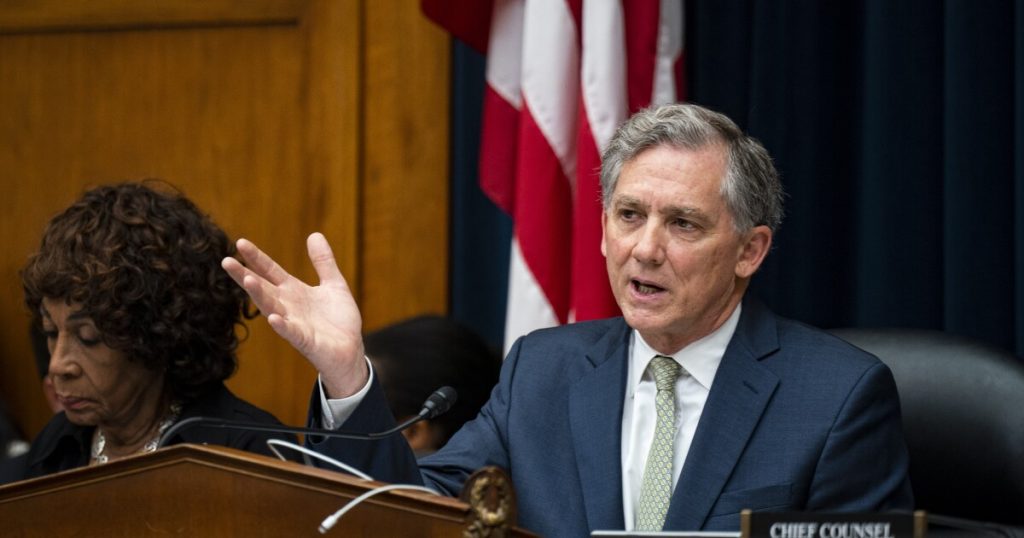- Forward look: Deposit insurance reform discussion is being taken up in earnest on the House Financial Services Committee.
- Key insight: More deposits are likely to not be considered brokered if the HFSC bill passes.
- What’s at stake: Custodial deposits are also extremely important in banking-as-a-service relationships, which have experienced several high-profile blowups in recent years.
WASHINGTON — The House Financial Services Committee passed a number of banking-related bills by wide margins Tuesday, including two bills related to brokered deposits.
Republicans and Democrats supported a bill that would increase the amount of reciprocal deposits a bank can hold without having them subject to more onerous brokered deposit rules. That bill passed unanimously.
They also passed a bill that would exclude some qualified custodial deposits from brokered deposit rules. Custodial deposits are frequently used in banking-as-a-service relationships between banks and fintechs — relationships that have come under
That bill passed nearly unanimously, 49-2.
The brokered-reciprocal deposit bill, introduced originally by Republican Majority Whip Tom Emmer, R-Minn., would create a waterfall system of different sizes of banks and how many deposits they hold that could be considered brokered. Ultimately, it would increase the number of deposits that wouldn’t be considered brokered at most institutions — a change, lawmakers said, that’s needed after the Silicon Valley Bank crisis in 2023, when banks seeking to expand the proportion of insured deposits turned increasingly to reciprocal deposits.
Brokered deposits refer to deposits collected by a third-party and deposited into a bank as a single block. Critics sometimes refer to these deposits as “hot money,” because investors might pull the money in search of better interest rates elsewhere.
That scenario of brokered deposits fleeing banks in search of higher returns is precisely what precipitated the savings and loan crisis of the 1980s and 1990s, which led thousands of small banks into failure. In response, regulators began putting up roadblocks for brokered deposits, such as prohibiting undercapitalized banks from accessing them, or demanding that those institutions hold more liquidity to offset their risk. Brokered deposits also tend to garner more regulatory attention and can demand higher deposit insurance premiums.
The rules around brokered deposits loosened during President Donald Trump’s first term, when a 2020 rule laid out and expanded a number of criteria for a broader set of companies to bypass these restrictions. The primary purpose exception does so by giving a pass to potential deposit brokers when their main relationship or business line with a bank isn’t the placement of deposits.
This bill would further loosen those restrictions. Lawmakers, including House Financial Services Committee Chairman French Hill, R-Ark., said in the markup that reciprocal deposits, like those offered through a network to move deposits around to various banks to get increased deposit insurance, aren’t like “hot money” that could leave a bank en masse and cause a panic. That difference in behavior should mean a difference in regulatory treatment, he said.
The Senate has a similar bill, introduced by Sens. Mike Rounds, R-S.D., and Mark Warner, D-Va. That bill has additional incentives for holding reciprocal deposits for banks with over $250 billion of assets. The House version of the bill has no consideration for banks with more than $250 billion of assets.
Hill adjusted the numbers for the largest banks to appease Rep. Maxine Waters, D-Calif., in a compromise that will likely smooth its passage to the House floor, according to two sources familiar with the matter.
Waters was convinced by testimony from Community Development Financial Institution leaders and minority depository institutions that the reciprocal deposit bill would help those banks in particular, one of the people said.
The other bill on custodial deposits also passed by a wide margin, and had the support of leading Democratic banking lawmaker Waters.
Hill described the impact of the custodial bill without mentioning banking-as-a-service relationships.
Custodial accounts, he said, “are accounts opened by a third party on behalf of others who may own funds, but typically do not have a direct relationship with the bank.”
“For example, a landlord may temporarily place tenant security deposits in a bank, even though the tenant remains ultimately the owner of those funds,” Hill said. “In these arrangements, banks benefit from new low cost sources of funding, and the third parties benefit from the convenience of maintaining a single account at a bank with the added benefit of deposit insurance.”
Waters said that
“When Silicon Valley Bank failed, regulators had to use emergency tools to protect the bank’s depository,” Waters said. “But afterwards, many businesses moved their money to the largest banks out of fear their deposits would be locked up in another failure.”
Waters referenced the
“That’s not fair,” she said.

